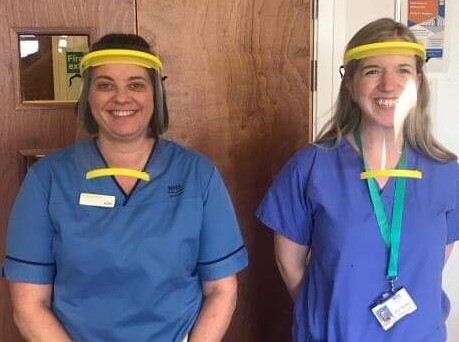MEDICAL and clinical staff battling COVID-19 in Edinburgh have booked 1,000 nights of free rooms and meals at the largest independent hotel in the city.
Ten Hill Place, owned by The Royal College of Surgeons of Edinburgh (RSCEd), opened its doors to the city’s hospital staff on Friday 27 March and has since accommodated more than 200 key workers, with bookings increasing daily.
Located three miles from the Royal Infirmary of Edinburgh and less than a mile from the Royal Hospital for Sick Children, the hotel is providing much-needed nearby accommodation and meals for key workers tackling the pandemic.
This has proven invaluable to guests facing tiring commutes between expanding shifts or to help workers isolating from vulnerable family members.
Scott Mitchell, Managing Director at Surgeons Quarter, said: “The response to our decision to accommodate medical and clinical workers has been astounding, and we want to encourage more staff who are working at the city’s hospitals to get in touch with us to find out how we can help support them.
“It’s a privilege to play our part in helping make the lives of medical workers a little easier during one of the most difficult times the country has faced.”
Ten Hill Place has 129 bedrooms available for hospital staff, as well as packed continental breakfasts and complementary evening meals courtesy of its award-winning catering team.
Frontline workers have praised the hotel for its continued support during the pandemic.
A Tripadvisor user, “renaissanced”, posted: “I cannot explain how grateful I am to them. All social distancing respected and we are well looked after – not to have worries about cooking or cleaning plus a calm comfortable night’s sleep is great. This will be my top hotel in Edinburgh forever.”
Another user of the travel review site, “Richard G”, said: “My fiance and I stayed here while she has been working as an intensive care nurse which has cut out travel and time during this stressful period. I cannot praise the staff and ownership of this hotel enough – it is a wonderful facility and the help they are providing the NHS is amazing. I will always try to stay here in the future.”
Professor Michael Griffin, President of the RSCEd and one of the UK’s leading surgeons, said: “We’ve heard and seen directly from our colleagues how severe the impact COVID-19 is on our health service.
“Having accommodation near hospitals to rest and recover from allows our colleagues to be looked after, at a time when they need the most support. We’re incredibly proud of the team at Surgeons Quarter and their invaluable efforts to help the health service.”
Scott added: “We look forward to welcoming and accommodating as many workers as possible over the coming weeks, please contact the hotel on 0131 662 2080 or by email at reservations@tenhillplace.com to make your booking.”
As well as the commitment to accommodate staff, the RCSEd has been engaging with interim Chief Medical Officer Dr. Gregor Smith to declare its willingness to temporarily convert the hotel, should hospitals overflow.
Surgeons Quarter promotes, sells and manages all commercial activities held within the RCSEd campus. All profits support the charitable aims of the College which are education, assessment and advancement in surgical standards worldwide.
Ten Hill Place Hotel can be contacted on 0131 662 2080 or reservations@tenhillplace.com











 “Orders are coming in thick and fast from NHS workers, carers, testing hubs, postal workers and shop workers across Ayrshire, Perthshire, Fife, Forth Valley and Clackmannanshire. We had to set up a business model quickly and efficiently to get this right. Everything is done safely from our homes and we communicate through phone and video calls.
“Orders are coming in thick and fast from NHS workers, carers, testing hubs, postal workers and shop workers across Ayrshire, Perthshire, Fife, Forth Valley and Clackmannanshire. We had to set up a business model quickly and efficiently to get this right. Everything is done safely from our homes and we communicate through phone and video calls.



